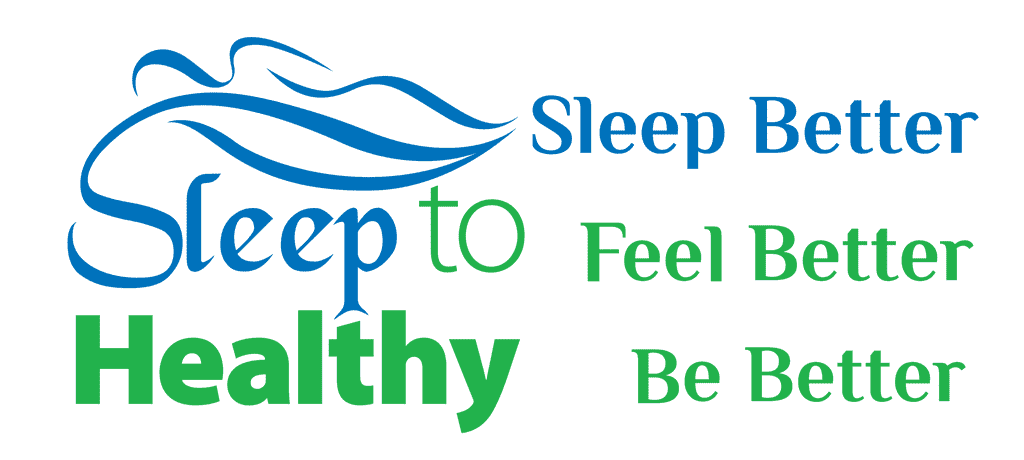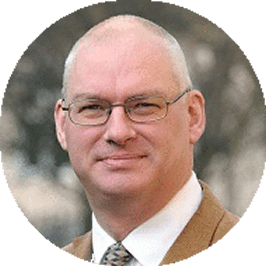Click title to see more…
The Sleep to Healthy website is now a 10 lesson course on curing insomnia.
This course is not a quick fix and it is not easy. The course is based on CBTi or Cognitive Behavioral Therapy for Insomnia. CBTi is the first-line insomnia treatment method endorsed by:
- The U.S. National Institute of Health and
- The British Association of Psycho-pharmacology.
- The American Academy of Sleep Medicine.
By the end of the “Cure Insomnia” course, students will have the knowledge and tools they need to cure their insomnia. Not just now, but for a lifetime.
Did I mention that it’s free?
Go to SleepToHealthy.com to get started.
Summary: Guest: Sleep expert Dr. Neil Stanley , author of “How to Sleep Well: The science of sleeping smarter, living better and being productive”:
- Insights from 37 years as a sleep expert, researcher and consultant
- What surprised him about sleep advice during that time.
- What happens to us physically and in the brain during sleep.
- The difference between feeling tired and sleepy and why that is important.
- The Epworth sleepiness scale, larks and owls.
- A survey Dr. Stanley conducts with his audiences and what that tells us about our state of sleepiness.
Episode’s Habit Crusher: How to crush a bad habit. James Clear’s book: Atomic Habits: An Easy & Proven Way to Build Good Habits & Break Bad Ones, https://www.amazon.com/Atomic-Habits-Proven-Build-Break/dp/0735211299 , www.stickk.com
Links mentioned in the show:
Dr. Stanley’s Website: http://thesleepconsultancy.com/
Book: How to Sleep Well: The science of sleeping smarter, living better and being productive https://www.amazon.com/How-Sleep-Well-Neil-Stanley/dp/0857087681
Twitter: https://twitter.com/drneilstanley @drneilstanley
Show notes with time they occur in the episode:
2:00 – Dr. Stanley Talks about his personal life
4:20 – Dr. Stanley talks about his 37 years in sleep research. He started his career at The Institute for Aviation medicine. This was in 1982 when they had long-duration flights. Looked at things like jet lag, aircrew workload shift work, medicines you could take and safely fly, medicines you could take and get a good night’s sleep so you could fly the next day. He was a 16 year old at the time. He stayed there for about 10 years and then moved to the University of Surrey where he created and ran the largest clinical trial laboratory at the time. That was a 24 bed unit, he designed and constructed the 12 finest bedrooms anywhere on the planet, dark, totally quiet, temperature controlled, single beds. About 10 years ago he became freelance so he now travels the world lecturing about the importance of sleep to Healthcare professionals, doctors and nurses, to patient groups, to charities and schools, and to members of the public. 10 years ago nobody was talking about sleep, but now we get huge amounts of coverage in the media. He gives a hundred to a hundred and fifty lectures a year, and writes about sleep, has a column in one of the Sunday newspapers in the UK, and works as a sleep expert with companies who are in the sleep field and who he believes are credible.
8:20 – Dr. Stanley talks about what surprised him during his 37 years in the area of sleep and studying sleep facts. He was surprised how little things have changed. We may have learned more about sleep in the last 60 years than the previous 6000, but our advice to patients and sleep solutions has not changed. We have all these apps, and smart devices, and fancy mattresses, and none of these are of any use as sleep solutions if you’re not willing to do the basics. Unfortunately you can’t make money out of doing the basics. You need to go back to the basics, a dark and quiet bedroom, a calm, mind, a relaxed body.
12:10 – Dr. Stanley discusses what happens physically and mentally while we sleep and sleep facts. The physical aspect is not as important as we think. The body can get a lot of rest, recuperating and repairing, such as well when we sit. The immune system is fortified while we sleep because it is not working as hard. After one poor night’s sleep, the next day you are three times more likely to catch the common cold. The endocrine and the metabolic systems are resting.
But sleep is really from the brain and for the brain. Only in the deepest sleep, the N3 or slow wave sleep, is the activity in the brain reduced to any degree, by about 25%. It’s sorts all the information it’s received during the day and decides whether some of it is important and needs to be laid down as important permanent memory, or whether it is unimportant and can be safely forgotten. The brain rehearses behaviors that it learned during the day. We get about 17% better at a task after we have slept. It also deals with emotional memories and emotional well-being. Deep sleep is about factual memory, and REM sleep is about emotional memory.
Other sleep facts are how REM sleep helps with relationships. It can get rid of toxic by-products such as beta amyloids which are found in Alzheimer’s patients. That may be why people with insomnia are three times more likely to develop Alzheimer’s. We only physically grow while we are asleep, especially specifically in the deep sleep. We are not pushing against gravity while we are sleeping. So with even one poor night sleep, we’re more likely to get an illness, more likely to get into an accident, our mood and behavior is changed towards their partner and children, teenagers do worse at school, we just don’t perform at our best. There are long-term effects such as depression, anxiety, obesity, diabetes, stroke, heart disease, but these are not massively statistically significant. You’re more likely to die from other causes then you will as a result of poor sleep. So we want to get a good night sleep for physical, emotional and mental health.
19:40 – Dr. Stanley talks about the difference between sleepy and tired. And how we can tell if we’re getting enough sleep. When you get into your 20s, your sleep needs become fixed for life. Elderly people do not need less sleep. They find it difficult to get to sleep but they still need the same amount. Sleep need is like height, it’s genetically determined and we are all different. An important sleep fact is that 8 hours is not an ideal, it is simply an average. You have short sleepers and you have long sleepers. Anything between 4 and 11 hours can be considered normal sleep. It’s about getting the sleep that is right for you so if you need 4 hours sleep there’s no sense staying in bed for 7 hours to sleep well. Figuring out how much sleep you need boils down to answering one simple question. How do you feel during the day? If you are not getting enough sleep, you will have daytime consequences. Regardless of whether you got to sleep quickly or not, whether you are up during the night, whether you woke up early, bad judgment is how you are feeling around 11 in the morning when you are on your rising phase of performance that tells if you sleep well. Tired has nothing to do with having enough sleep and whether you sleep well. Tired has to do with having a bit of a rubbish life, all the mundane aspects of living such as daily commute, tasks, jobs, etc. That means I want to rest and take a break, not go to sleep. If you need to sleep you are sleepy. If you need to rest and sit down, you are tired. The problem is that we use the term tired to being sleepy which causes confusion. It is a problem with doctors trying to determine whether their patient is tired and lacking energy versus sleepy and wanting to sleep. We can be exhausted from being physically active, but not be sleepy.
24:10 – We discussed the Epworth sleepiness scale as a sleep test. It is a widely used questionnaires developed in Australia about 25 years ago as a sleep test. It asks you about different situations that you might be in and How likely you would be to fall asleep. The score of over 10 would imply excessive sleepiness and that you don’t sleep well. There’s the Horne and Ostberg Morning and Evening questionnaire. It is about being Larks and owls, morning people and evening people. About 25% of people are strong morning people, about 25% or strong evening people. This is an important thing to know about your sleep. Whether you are a lark or an owl is genetic. You try to work in harmony with your genes. The most important self-assessment is to listen to your body. When the body is sleepy, go to bed, simply sleep.
27:10 – Dr. Stanley Often performs an informal survey with his audiences to see how tired they are. Nobody has responded has a 10 mean meaning they are the most awake they have ever been. Most people are content to be a six or a seven. This seems like a bit of a failing on our part that our expectations are so low. Especially considering how much emphasis we put on fitness and nutrition. Some people in the middle of the day are putting their hands up at a 4. You probably wouldn’t want them to be doing something like driving a car or something that was safety-critical. Most people would not think about drinking and driving, yet they would drive at that level of sleepiness. The same goes with turning up at work being sleepy.
Next episode, Part 2 of Sleep Expert, we cover sleep solutions and how to simply sleep, why can t i sleep, and sleep well and how to cure insomnia, things to help you to sleep.
33:50 – Habit Crusher: Using punishment and an accountability partner to crush a bad habit or stick to a good habit.



Sleep To Healthy Thoughts